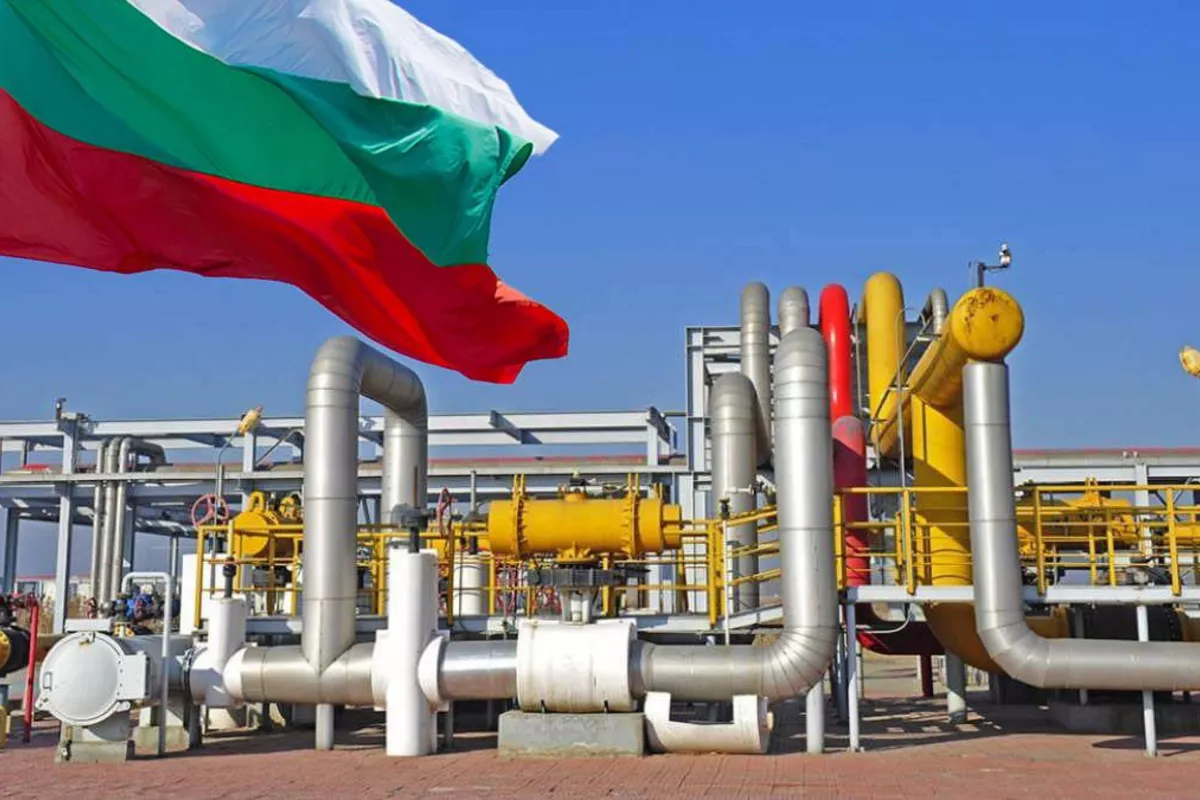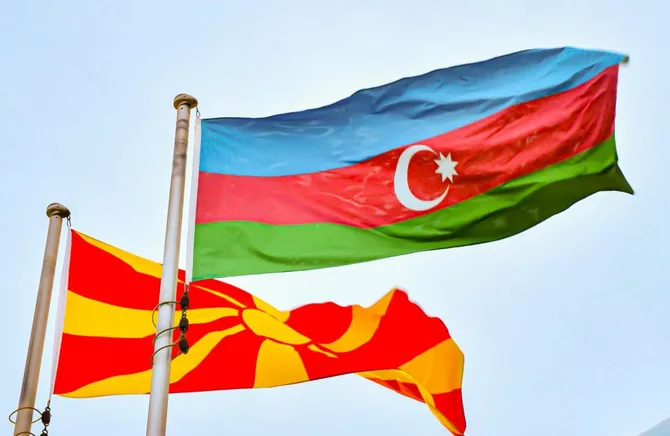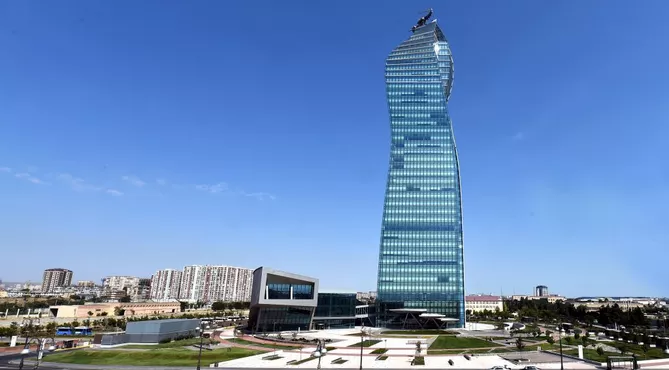
photo: Caspian Barrel
The energy map of Southeastern Europe is undergoing a profound transformation, and at the heart of this shift lies Azerbaijan, a country that has steadily strengthened its role as a key supplier of natural gas to the European market. In recent years, Azerbaijan has moved beyond being a reliable energy partner for the EU to becoming a driving force for diversification and energy security in one of the continent’s most vulnerable regions - the Balkans.
SOCAR, Azerbaijan’s state oil company, is now setting its sights on a new frontier: North Macedonia. According to Murad Heydarov, head of SOCAR’s Balkan regional office, the company is studying the possibility of launching a hybrid gasification project in the country. This initiative would see compressed natural gas transported from Bulgaria to North Macedonia by road, initially targeting essential social facilities such as hospitals, schools, and other public institutions. It is a practical solution for a country with limited infrastructure and a growing demand for cleaner energy.

photo: mejlis.gov.az
This move is not only about commercial expansion. It reflects a broader strategy that Azerbaijan has pursued for years - positioning itself as a pillar of stability and an alternative to overreliance on a single supplier. In the Balkans, where energy dependence has historically been a political vulnerability, Baku’s approach resonates strongly. For North Macedonia, which has no direct gas contract with Azerbaijan and currently relies on imports from Greece and Bulgaria, even small volumes of Azerbaijani gas delivered through Bulgarian intermediaries have been a lifeline.
The stakes are high. North Macedonia’s annual gas consumption currently stands at just 300-400 million cubic meters, but this figure is expected to grow sharply. The government’s “Just Transition” program envisions replacing coal-fired power plants with gas-fired facilities, significantly increasing demand. Moreover, Skopje has ambitious plans to become a regional gas transit hub, channeling energy flows to Serbia, Hungary, and other Central European states. A new interconnector with Serbia, spanning 66.5 kilometers and with a projected capacity of 1.4 billion cubic meters per year, is under development and set for completion by 2027. Azerbaijani gas is poised to play a central role in this network.
The geopolitical implications of this transformation cannot be overstated. The Balkans have long been a region where energy infrastructure and political influence are intertwined. By connecting to the Southern Gas Corridor (SGC), North Macedonia is not just diversifying its energy sources - it is reducing its strategic vulnerability and aligning itself more closely with European energy goals. The pipeline linking the country to the SGC is expected to be completed by the end of this year, with a planned capacity of 2.8 billion cubic meters. This will be a game changer, enabling direct flows of Azerbaijani gas and ending the reliance on short-term, fragmented arrangements.
Bulgaria’s experience offers a glimpse of what this future might look like. Since joining the SGC through the Greece-Bulgaria Interconnector (IGB), Bulgaria has rapidly emerged as both a major consumer and transit hub for Azerbaijani gas. In 2024, Azerbaijan’s share of the Bulgarian gas market reached an impressive 60 percent - roughly 2 billion cubic meters annually. SOCAR and the Azerbaijan Gas Supply Company have been instrumental in this success, working in partnership with Bulgartransgaz and leveraging the Balkan Gas Hub, which has become a reliable and transparent platform for regional gas transactions.
SOCAR’s activities in Bulgaria go beyond large-scale supply agreements. The company has focused on projects that directly improve people’s lives and expand access to energy. In Panagyurishte, SOCAR is building a local gas distribution network in partnership with Asarel Energy, one of Europe’s largest mining companies. This initiative will bring gas not only to industrial enterprises but also to municipal institutions and households, essentially gasifying an entire city and its surrounding region.

photo: SOCAR Germany
Another key project, developed jointly with the company M-Gaz, aims to deliver gas to areas not connected to the national transmission network. Bulgaria remains one of the EU countries with the lowest level of gasification, making such initiatives critical for economic development and environmental progress. These efforts demonstrate SOCAR’s commitment to combining commercial goals with social responsibility - a model that could be replicated in other Balkan countries, including North Macedonia.
The political dimension of these projects is equally significant. Last November, SOCAR and North Macedonia’s state-owned energy company ESM signed a Memorandum of Understanding in Skopje, laying the foundation for deeper cooperation. This agreement signaled North Macedonia’s intent to move beyond reliance on intermediaries and establish a direct, long-term partnership with Azerbaijan. As Energy Minister Sanja Bozhinovska emphasized, the country sees Azerbaijani gas as vital not only for domestic consumption but also for its regional transit ambitions.
The timing of these developments is critical. The war in Ukraine and the ensuing energy crisis exposed Europe’s dangerous dependence on Russian gas. While EU member states scrambled to secure alternative supplies, the Balkans faced unique challenges due to their underdeveloped infrastructure and political fragmentation. By stepping in with reliable supplies and strategic investments, Azerbaijan has helped to stabilize the region and support Europe’s broader diversification agenda.
For Azerbaijan, these projects are part of a long-term vision. The Southern Gas Corridor, which delivers Caspian gas to Europe via Georgia and Türkiye, has already proven its strategic value. Expanding its reach deeper into the Balkans not only strengthens Azerbaijan’s role as a trusted partner but also enhances the EU’s resilience in the face of geopolitical shocks.
The coming years will be decisive. If current projects proceed as planned, North Macedonia could become a key link in a regional network that connects Southeastern Europe to Caspian energy resources. For the people of the Balkans, this means greater energy security, cleaner power generation, and new opportunities for economic growth. For Europe as a whole, it represents a step toward a more balanced and diversified energy future.
In this evolving landscape, Azerbaijan’s pragmatic and forward-looking strategy stands out. By combining infrastructure development with social responsibility, and by aligning its energy policies with the needs of its partners, Baku is not merely selling gas - it is reshaping the energy geopolitics of an entire region. The Balkans, long seen as Europe’s periphery, may soon emerge as a vital crossroads of energy flows, with Azerbaijani gas at the heart of this transformation.
By Tural Heybatov
Share on social media